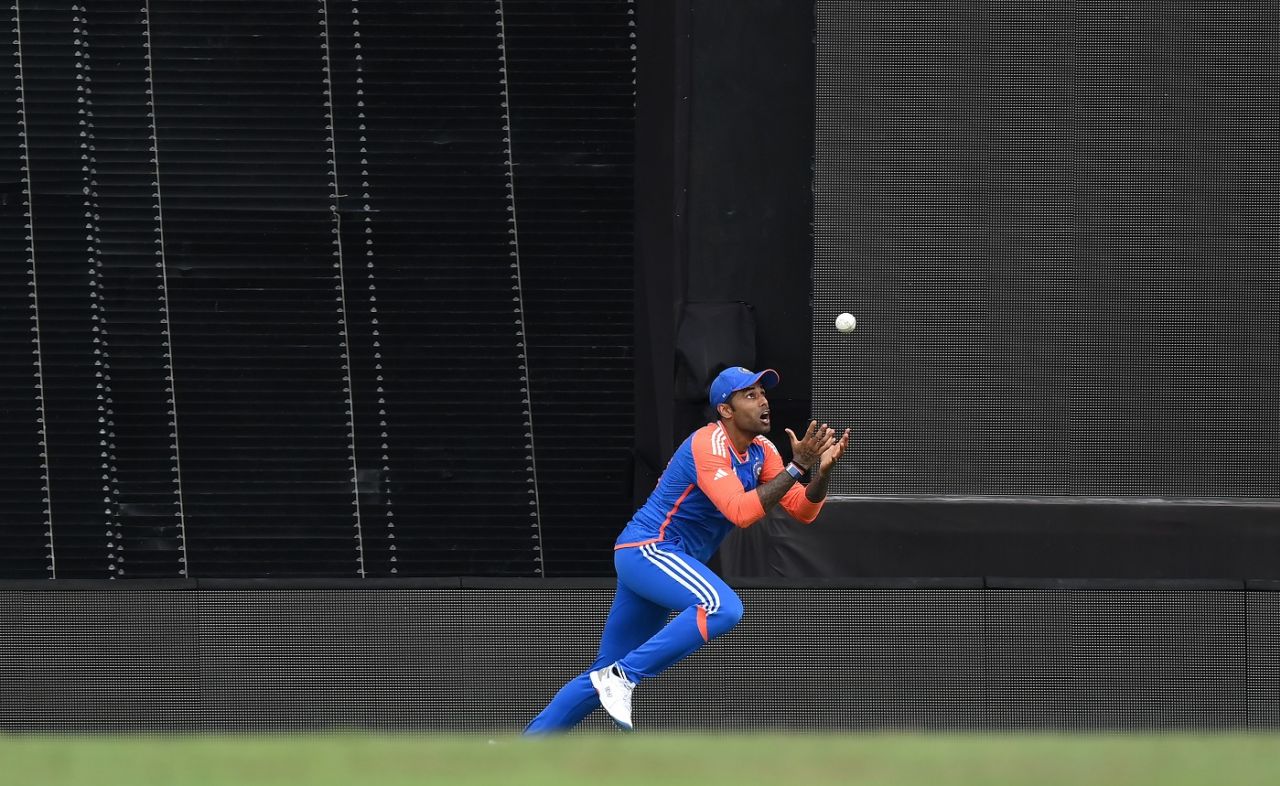India bask in T20 World Cup glory
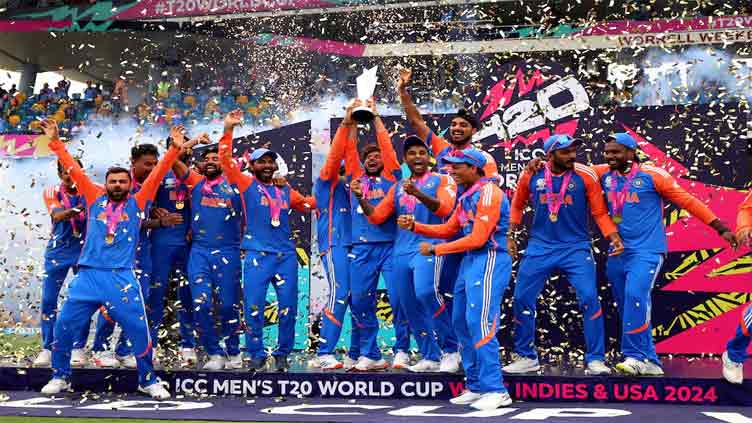
Cricket
Suryakumar Yadav's catch stirs a controversy
By Anees-ur-Rehman
The Indian cricket team ended an 11-year wait for an ICC trophy by defeating South Africa by seven runs in a thrilling T20 World Cup final in Bridgetown, Barbados.
This win, marked by strategic batting, accurate bowling, and outstanding fielding, earned India their second T20 World Cup title after 17 years.
India's victory in the final was the result of a well-rounded team effort. Key contributions with the bat from Virat Kohli and Axar Patel, combined with disciplined death bowling by Jasprit Bumrah and Hardik Pandya, secured the title against a formidable South African side. This win marked a significant achievement for Indian cricket, adding their 6th ICC trophy to their collection.
The year 2024 proved to be fortuitous for the Men in Blue as they won the ICC event after losing five finals - T20 World Cup in 2014, Champions Trophy in 2017, World Test Championships in 2021 and 2023, and ODI World Cup in 2023.
With this win, India joined England (2010, 2022) and the West Indies (2012, 2016) as the only teams to have won the T20 World Cup twice. Remarkably, India also became the first team to win the T20 World Cup unbeaten, with eight victories and one washout in the tournament.
India snatch victory from jaws of defeat
Overall South Africa dominated the final match but India pulled things back and snatched the victory from the jaws of defeat against the African side.
Confidence and self-belief propelled the Indian side to shine on the world stage. Indian captain Rohit Sharma's calmness under pressure was instrumental in their success. His strategic use of bowlers turned the game around from a seemingly lost position.
In a remarkable comeback, India prevailed after South Africa needed just 30 runs at a run-a-ball. Despite the challenging situation, the Indian bowlers stood firm, changing the course of the game when it mattered most, restricting South Africa to 169-8 in pursuit of 177 runs.
The team's strong body language was evident not only in the final but throughout the tournament. They excelled in all aspects – batting, bowling, fielding, and especially under the smart leadership of Rohit Sharma – to reclaim the title after 17 years.
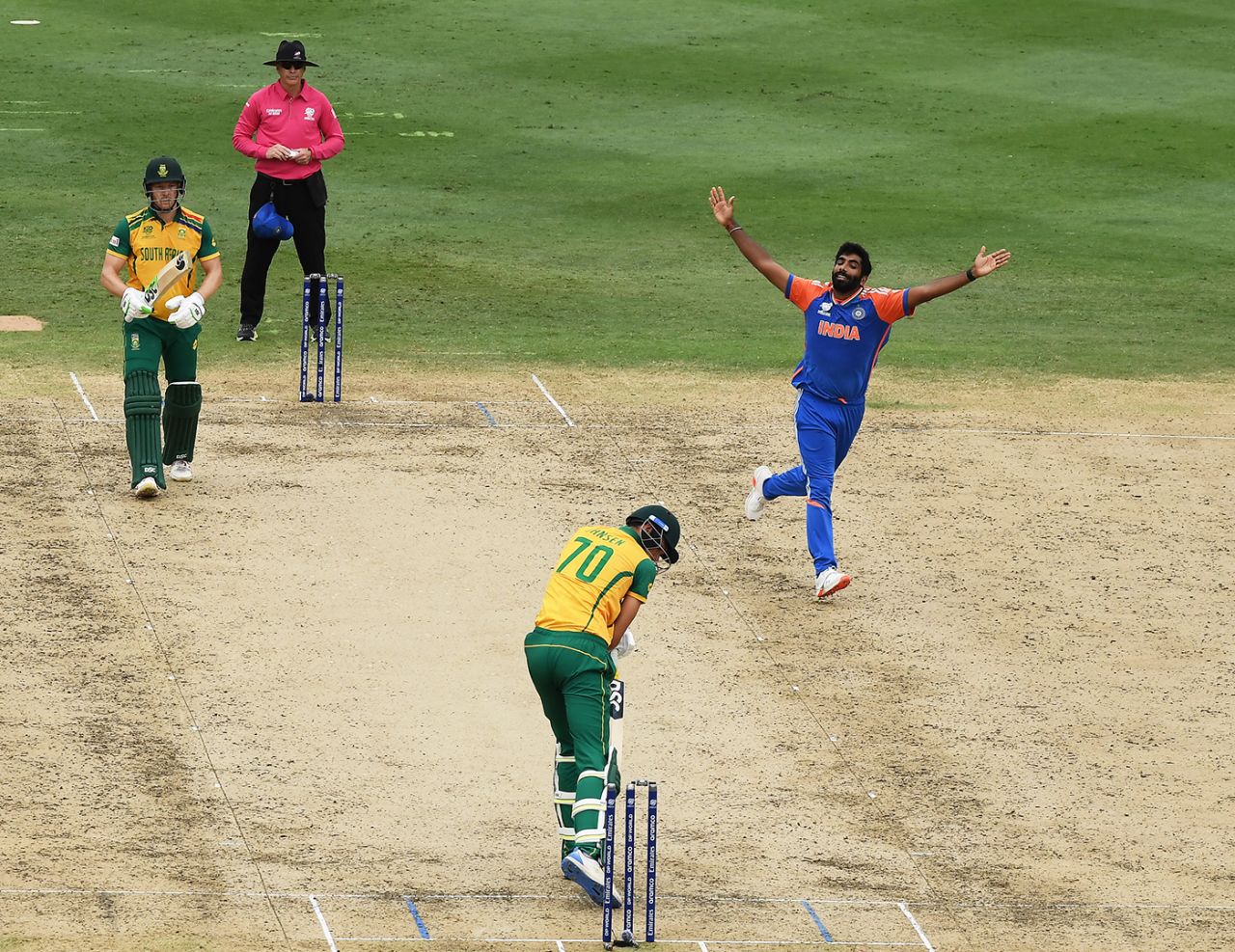
India outsmart South Africa
India played a more strategic game compared to South Africa. When India was reeling at 34-3, coach Rahul Dravid made a decisive move by sending all-rounder Axar Patel up the order, similar to their approach in the game against Pakistan. This tactic aimed to counter the left-arm spinner Keshav Maharaj, who had already claimed two wickets in his opening over.
Patel capitalised on the opportunity, scoring a crucial 47 runs off 31 balls and providing stability to the innings.
In contrast, South Africa lacked the killer instinct and tactical sharpness. Despite needing only a run per ball to win, their batsmen appeared overly cautious and refrained from hitting big shots. A more aggressive move, like promoting Maharaj or Rabada ahead of all-rounder Jansen, could have potentially sealed the match for them before the 20th over. However, Indian bowlers maintained their composure under pressure, guiding their team to victory.

Rohit’s heroics
Following the World Cup triumph, Rohit Sharma, Virat Kohli, and Ravindra Jadeja announced their retirement from the T20I. Sharma concluded his career as the highest run-scorer in T20Is with 4,231 runs, with Kohli second at 4,188 runs, followed by Babar Azam with 4,145. The final also marked Rahul Dravid's last game as India’s head coach.
Rohit Sharma, the only Indian player to have participated in all nine T20 World Cups, ended his T20I career with a record 50 wins as captain, surpassing Babar Azam’s 48 victories from 85 games. Rohit achieved this feat in just 62 matches.
Rohit Sharma (37 years, 60 days) became the second-oldest captain to win an ICC tournament, following Pakistan's Imran Khan, who lifted the ODI World Cup in 1992 at the age of 39 years and 172 days.
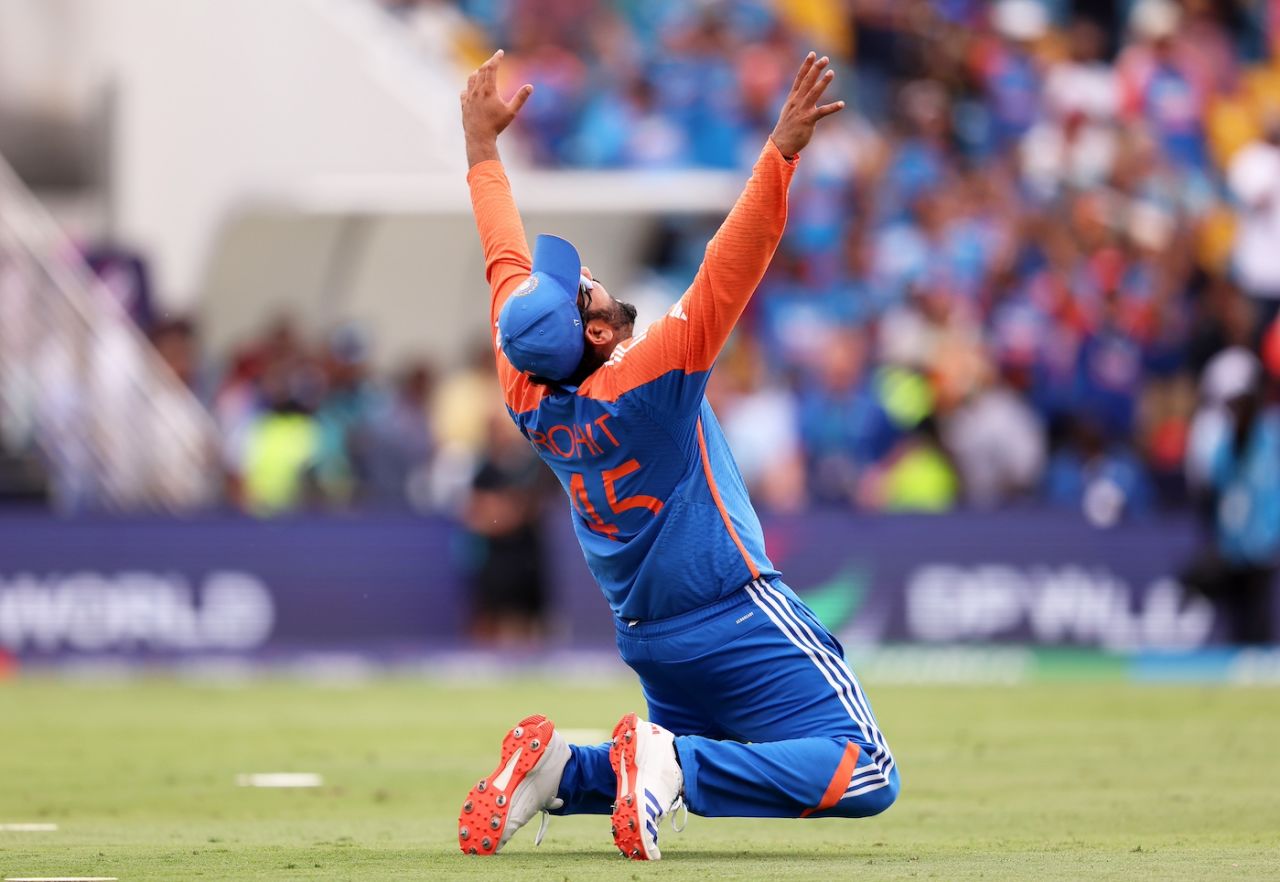
Here are the key moments of the game
Virat Kohli’s brilliant half-century
Despite failure in the whole tournament, prior to the final, the stylish batsman rose to the occasion and delivered yet another decisive performance, steering India to a competitive total of 176-7.
He proved his mettle when it mattered the most. With India struggling at 34/3, Kohli built crucial partnerships with Axar Patel and Shivam Dube, pushing India's score past 170. His innings of 76 runs off 59 balls, comprising six boundaries and two sixes.
In a media interaction before the final, former Indian captain Rohit Sharma responded to a question defending his teammate Kohli's recent poor form. Sharma expressed confidence in Kohli, suggesting that he had conserved his runs for the crucial final match.
Kohli subsequently justified his captain's faith with a resilient innings under pressure, showcasing his ability to perform under pressure.
Kohli has secured yet another Man of the Match award, taking his tally to 16, the most for any player in men's T20Is, surpassing Suryakumar Yadav's 15. Eight of Kohli's 16 match awards have come in the T20 world cups.

Jasprit Bumrah’s magical spell
Jasprit Bumrah consistently meets the expectations of both his captain and fans, regardless of whether he's handling a new ball or an old one. He masterfully showcases his skill and control in both the opening and death overs. When it comes to execution, he is undoubtedly the best in the town.
In a key moment during the final, with 30 runs needed off 30 balls and six wickets in hand, Rohit Sharma once again entrusted Bumrah with the ball. The star bowler responded magnificently, conceding only four runs in the 16th over and just two runs in the 18th over, while also dismissing South African all-rounder Jansen. Bumrah's final figures of 2-18 were instrumental in India's victory.
His outstanding performance throughout the tournament earned him the Player of the Tournament award, having taken a total of 15 wickets.
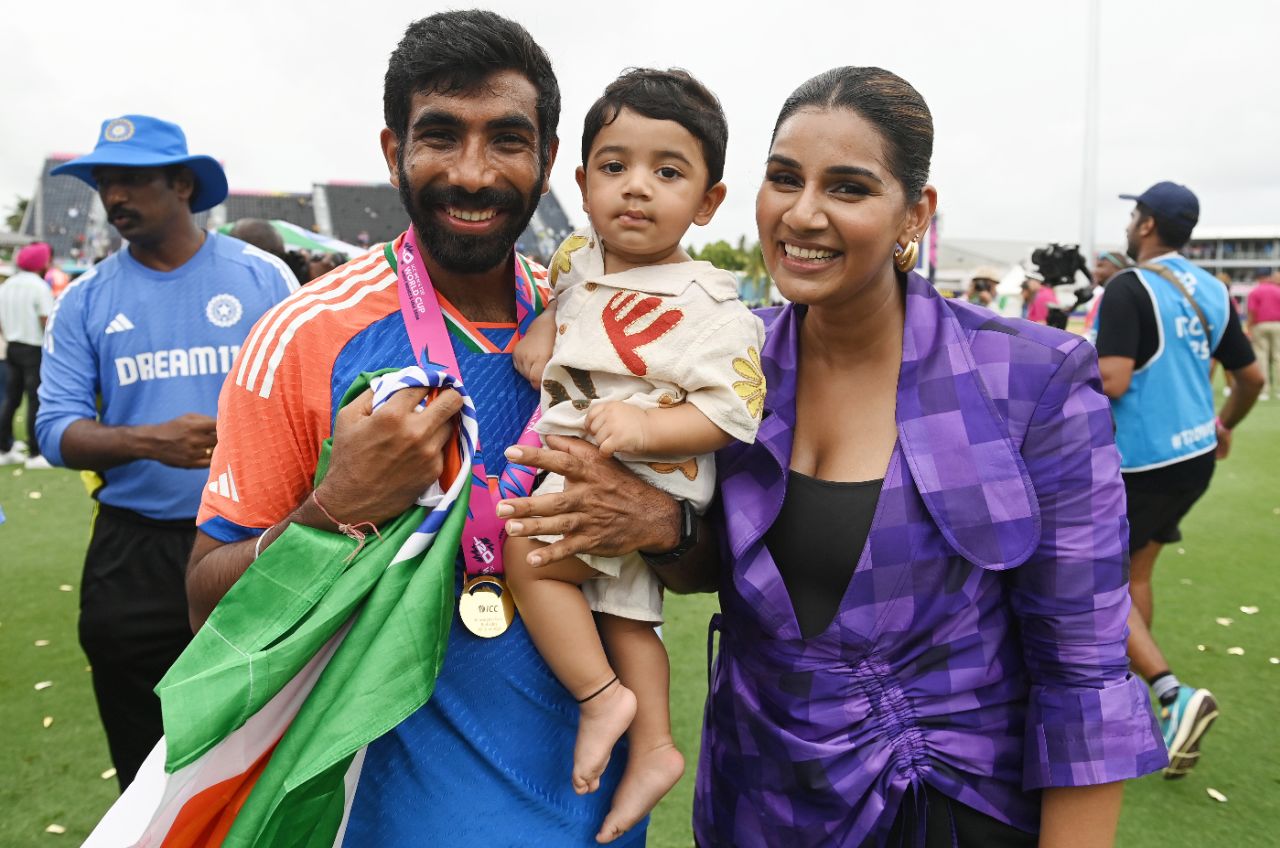
Hardik Pandya performed under pressure
Indian all-rounder Hardik Pandya produced key breakthroughs to help India defend their total of 176 against South Africa. With Axar Patel (1/49) and Kuldeep Yadav (0/45) proving expensive, India needed someone to step up.
Rohit Sharma turned to Hardik, and he delivered. The all-rounder took the vital wicket of Heinrich Klaasen (52 off 27 balls), changing the fortunes in India’s favour. It was a much-needed breakthrough as Klaasen was going all guns blazing, smashing 24 runs off Axar Patel in the 15th over.
As South Africa required 16 runs off the final over, Hardik Pandya took the crucial wicket of David Miller (21), thanks to a stunning catch by Suryakumar Yadav. He also dismissed Kagiso Rabada in the same over, sealing India’s historic victory.
Hardik finished with impressive figures of 3 wickets for 20 runs.
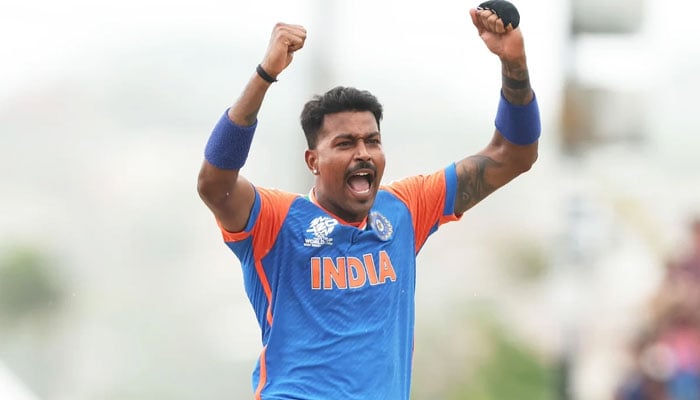
Suryakumar Yadav's catch stirs controversy
In the final over, with South Africa needing 16 runs to win, David Miller smashed the ball over the bowler. It seemed destined for a six until Suryakumar Yadav took a remarkable catch.
He caught the ball mid-air, juggled it as he crossed the boundary, and managed to hold onto it just millimeters from the boundary cushion.
The third umpire, Richard Kettleborough, reviewed it quickly and ruled it a legal catch, dismissing Miller for 21 and ending South Africa's hopes.
This catch initiated a debate on social media as some fans said that Suryakumar's shoe may have touched the boundary cushion.
It was also noted that the boundary rope's cushioning appeared to have shifted just before the catch.
According to ICC playing conditions, the rope, not the white line, defines the boundary. However, section 19.3 clarifies: "If a solid object used to mark the boundary is disturbed for any reason, the boundary shall be considered to be in its original position."
